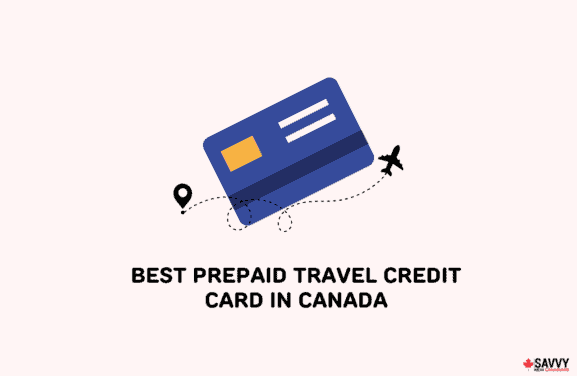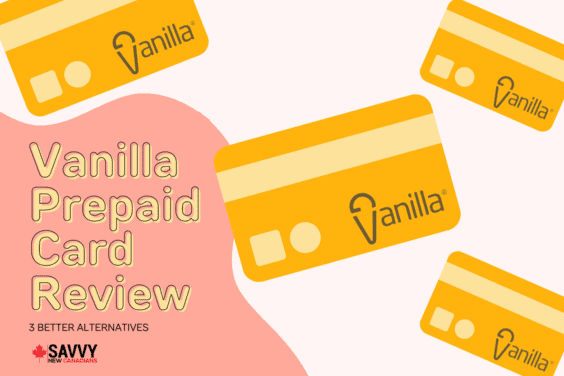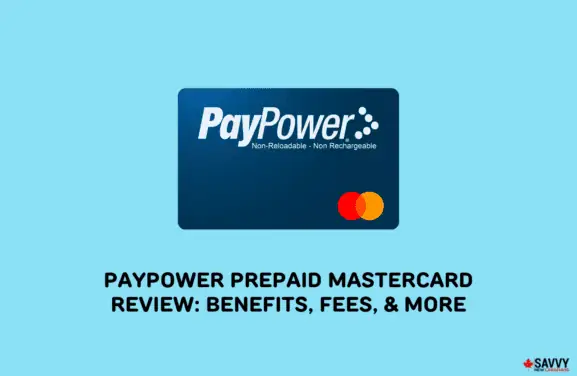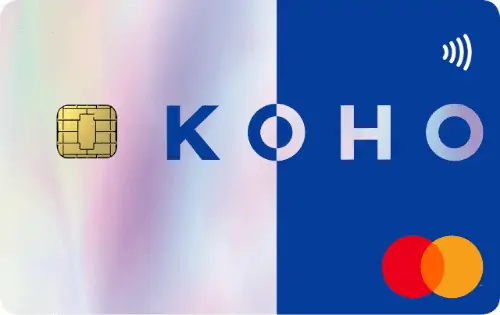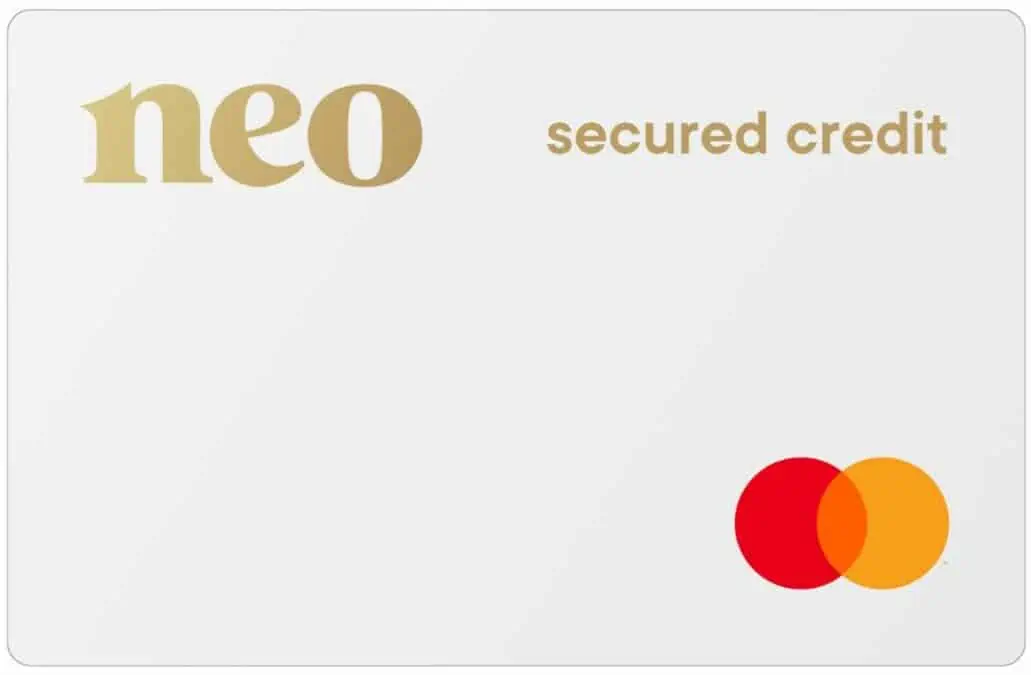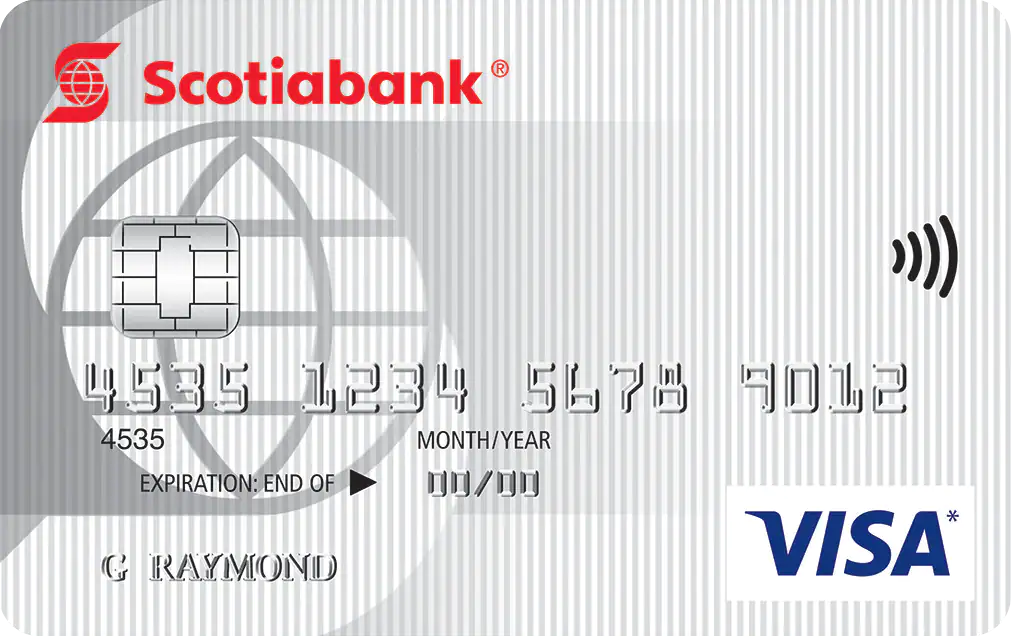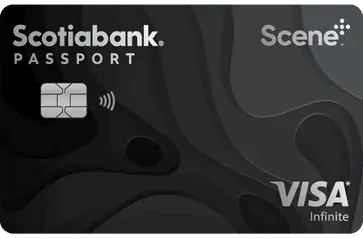Ever since they were introduced in 1958, credit cards have been a popular way for Canadians to shop.
Credit cards provide a way to purchase products or services without needing cash upfront. But for people looking at it as free money, using a credit card does come with some stipulations.
If you cannot pay off your credit card bill on time, you will be slapped with a high-interest rate. So you might be wondering: how does credit card interest work?
We can think of using a credit card like a mini loan. While interest is charged on a regular loan no matter what, credit card interest is only charged if you don’t pay off your balance in time.
There are a few different types of credit card interest rates in Canada. These include purchase interest, cash advances, and balance transfers. I’ll cover these in a little more detail later in the article.
My first suggestion is to do what you can to pay off your credit card debt. Interest on credit cards in Canada can be among the highest interest rates you can pay.
Credit cards can be a convenient way to shop, but if you spend more than you can afford, you could potentially incur a significant amount of interest with each passing day.
How Does Credit Card Interest Work?
Every credit card in Canada will come with an APR or Annual Percentage Rate. In essence, this is the same thing as the credit card interest rate.
While this is an annualized rate, credit card providers will charge you daily interest. We’ll take a look at the math a bit later on.
So when are you charged interest on a credit card? The significant thing to always be aware of is your payment due date. With many cards, even if you miss this by one day, the company can begin to charge you interest on late payments.
As long as you pay off your outstanding credit card balance by this date, you will not be charged any interest.
Depending on the card you use and your payment history, you might be eligible for an interest-free grace period.
If you do not have an outstanding balance and have been generally pretty good about making payments, most companies will give you up to 21 days from the date of purchase as a grace period on your payment.
Personally, I would not rely on this if you use your credit card frequently.
As mentioned earlier that there are several different types of credit card interest. Depending on your situation, you could potentially incur interest without even knowing it.
Let’s dive deeper into these types of credit card interest in Canada.
Purchase Interest Rate
This is the most common type of interest for credit card users. The purchase interest rate is the interest charged on the outstanding balance from regular credit card usage.
If you are unable to pay off your balance owing by the due date, then you will begin to be charged daily interest on the outstanding balance. This also includes any potential grace period you might have to make your payments.
In Canada, the average credit card purchase interest rate is about 20%.
There are certainly some low-APR credit cards as well that you can look at. For example, the Scotiabank Value Visa Card has a 12.99% purchase interest rate.
Cash Advance Interest Rate
Many people do not know that you can use your credit card for cash withdrawals or cash advances.
What is a cash advance with your credit card? They can be anything from an ATM withdrawal to money orders or wire transfers.
Your credit card is a versatile payment option, but just be aware that the cash advance interest rate is usually higher than the purchase interest rate.
In Canada, the average cash advance interest rate sits at about 22%. Another thing to keep in mind: cash advance interest rate is charged from the day you use it, which means there is no grace period for these types of transactions.
Balance Transfer Interest Rate
If you sign up for a new Canadian credit card but still have an outstanding balance on your old one, you will incur a balance transfer interest rate. These rates are typically about the same as the cash advance interest rate.
Occasionally a credit card company will offer a promotional low balance transfer interest rate. This is provided so that there is more incentive for you to switch over to their credit card.
These interest charges are just some of the credit card fees you should be aware of.
How to Calculate Credit Card Interest
If you ever find yourself with an outstanding balance on your credit card, you should know exactly how interest is calculated. There is no secret formula; the APR for each card is provided for your when you sign up for it.
One thing to keep in mind: the APR is an annual rate, and you incur monthly interest charges. But the interest for credit cards is calculated on a daily compounding basis.
If you can pay off more of your balance and interest before each month’s due date, you will lower the interest you pay.
Credit Card Interest Calculation Example
In this example, I’ll use a flat APR of 20% for simplicity and an outstanding credit balance of $15,000.
The four steps to calculating your daily interest charges are as follows:
- Identify your APR
- Identify your credit card balance
- Divide your APR by 365
- Multiply the number from Step 3 by the amount of your credit card balance
Here is how this looks in a table:
| Outstanding Balance | APR | Daily Rate | Daily Interest Charge |
| $5,000 | 20% | 20%/365 = 0.055% or 0.00055 | $5,000 x 0.00055 = $2.75 |
Easy enough! Keep in mind these examples are assuming no further charges are made on this outstanding balance. If you continue to use your credit card, these interest charges will rise.
Since the interest is compounded daily, in theory, your principal is rising with each passing day. So to get the most accurate daily interest number, you would have to use this calculation with a new outstanding balance each day.
Here’s what that looks like.
| Outstanding Balance | APR | Daily Rate | Daily Interest Charge |
| $5,000 | 20% | 20%/365 = 0.055% or 0.00055 | $5,000 x 0.00055 = $2.75 |
| $5,002.75 | 20% | 20%/365 = 0.055% or 0.00055 | $5,002.75 x 0.00055= $2.75 |
| $5,005.50 | 20% | 20%/365 = 0.055% or 0.00055 | $5,005.50 x 0.0055 = $2.75 |
| $5,008.25 | 20% | 20%/365 = 0.055% or 0.00055 | $5,008.25 x 0.0055 = $2.76 |
| $5,011.01 | 20% | 20%/365 = 0.055% or 0.00055 | $5,011.01 x 0.00055 = $2.76 |
| $5,013.77 | 20% | 20%/365 = 0.055% or 0.00055 | $5,013.77 x 0.00055 = $2.76 |
| $5016.53 | 20% | 20%/365 = 0.055% or 0.00055 | $5016.53 x 0.00055 = $2.76 |
So even though the daily amount of interest is slowly compounding, you can see how much your principal rises in just one week.
You might not think $16.53 of interest is a lot for one week. But remember: this $16.53 is interest on top of your principal because you didn’t pay off your credit card bill on time. It is an extra charge that is easily avoidable.
Related: Secured Credit Card vs Prepaid Card.
How to Avoid Interest On Your Credit Card
To avoid paying interest on your credit card, always spend within your means. A credit card is convenient, but it can also be dangerous, especially when shopping online. Credit card balances can quickly add up without you even realizing it.
Make sure you pay off your balance by the due date each month. Try not to rely on grace periods: sooner or later, there is a good chance this will catch up to you.
If you find it difficult to pay off your credit card bills, you can request a credit decrease. You can also choose to stop using your credit card altogether, but that can prove to be difficult in this day and age.
Lastly, you can limit paying interest on your credit card by using a credit card with a promotional 0% APR for a set period.
If you sign up for one of these, you can technically avoid paying interest until the promotional period is over. Read the fine print, though: this isn’t a strategy I would widely recommend!
FAQs
There are only a few 0% APR credit cards in Canada, most of which are promotional rates. As far as other low-interest rates go, the Scotiabank Value Visa Card has a 12.99% interest rate, and you can also get an MBNA card with an 8.99% interest rate.
Credit card interest rates can be a little confusing. They provide you with an APR, which is the annual rate. You pay a monthly interest charge on your balance. But the credit card interest rate in Canada is calculated daily.
It depends on when you make your payment. You can pay off your entire balance, but if it is after the due date and after the grace period, you will still have to pay interest.
Yes, many people think if they pay the minimum amount, they won’t have to pay interest. If you only pay the minimum, you’ll pay much more interest over the long run.
Related: How to get a credit card with bad credit.

